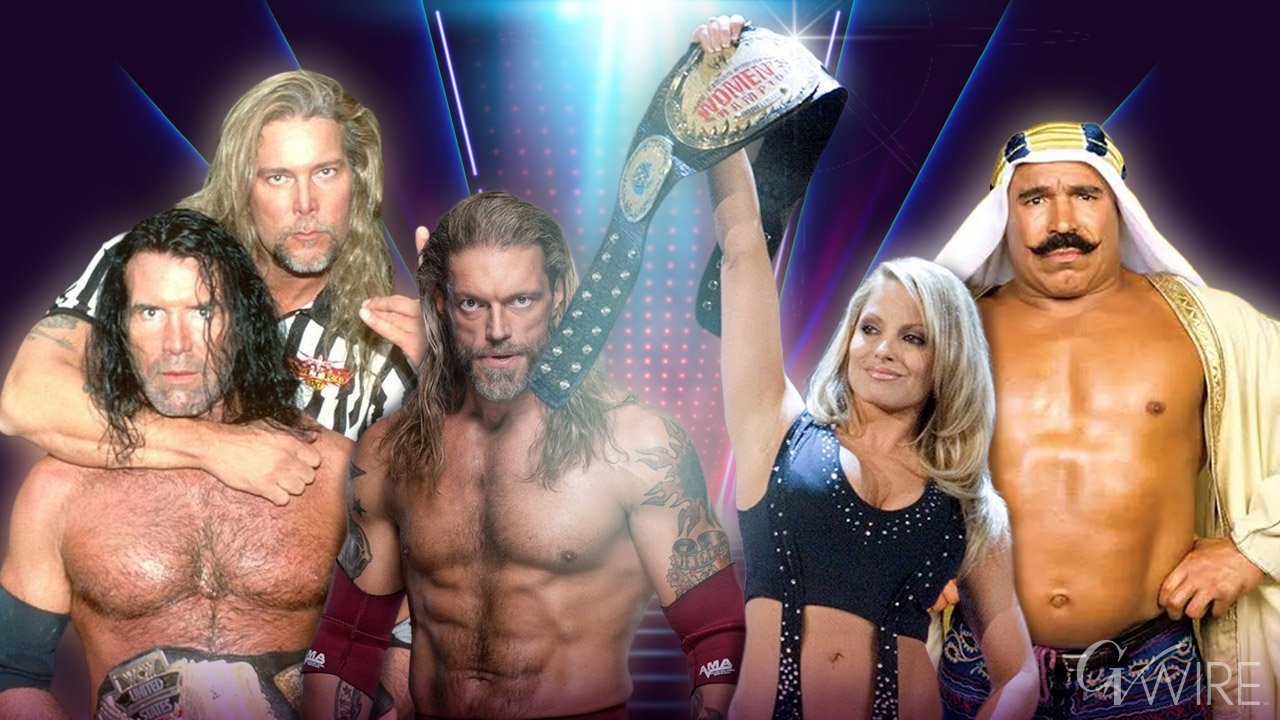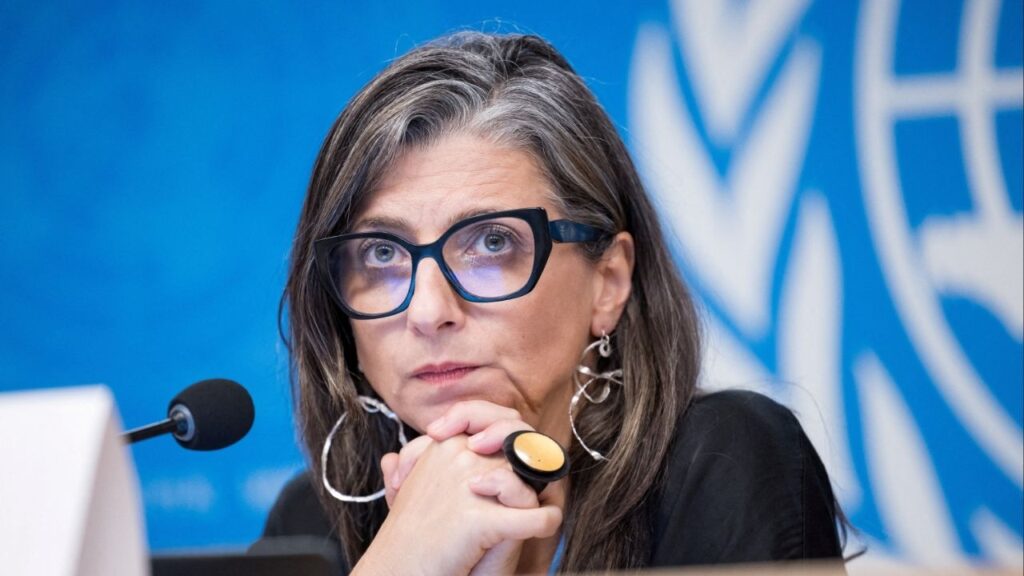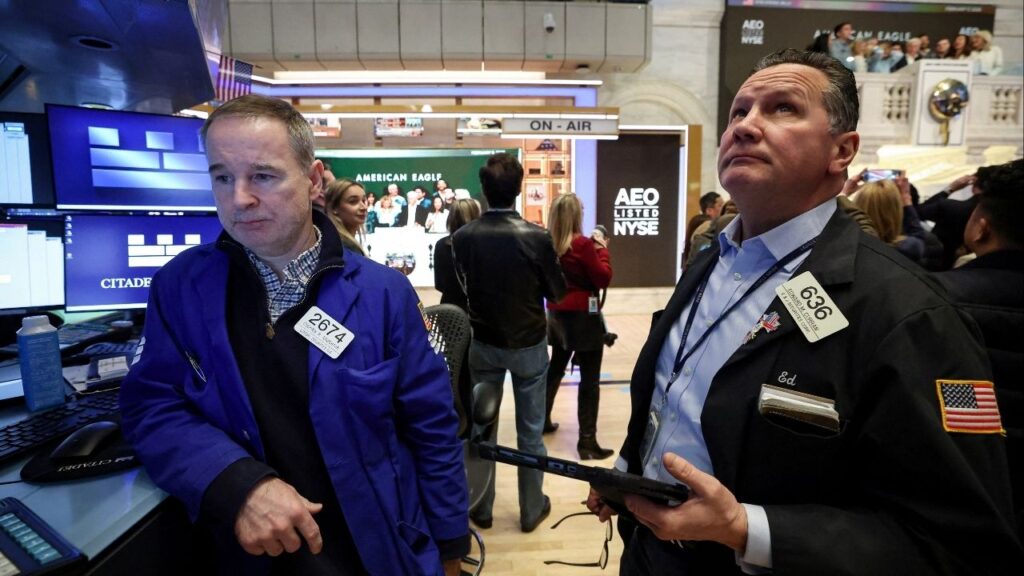The Outsiders: Scott Hall & Kevin Nash (left), Edge, Trish Status and The Iron Sheik are some of David Taub's Wrestling Observer Hall of Fame picks. (GV Wire Composite)

- The Wrestling Observer Hall of Fame honors wrestlers and personalities who shaped the sport with skill, charisma, and historical impact.
- My modern picks include The Outsiders, the Steiner Brothers, Edge, and Trish Stratus.
- Historical and non-wrestler selections feature icons like The Wild Samoans, Junk Yard Dog, Iron Sheik, and Gorilla Monsoon.
Share
|
Getting your Trinity Audio player ready...
|
What pro wrestlers deserve to be immortalized in the Hall of Fame?
For the second year in a row, I have a ballot for the Wrestling Observer Newsletter Hall of Fame.
For decades, the Wrestling Observer Newsletter has represented reporting excellence in a mostly closed industry. Publisher Dave Meltzer has long been the go-to figure for wrestling history, context, and news.
The WWE Hall of Fame may be the most prominent, but selections have often been at the whim of management, where the ability to sell tickets to the induction ceremony mattered more than merit.
The WON Hall of Fame follows a format similar to baseball’s. Writers, historians, and wrestlers receive ballots. Nominees are grouped into several categories based on era and geography. Candidates receiving 60% of the vote in a category earn induction.
The Hall of Fame offered guidelines for induction:
- Drawing power
- In-ring performance
- Historical significance
Longevity and trend-setting are also considerations. Categories include historical performers; modern performers in the United States and Canada; Japan; Mexico; other regions around the world (such as Europe and Australia); and non-wrestlers.
I Chose The Outsiders, Steiner Brothers for Modern Picks
Modern Performers, U.S. and Canada (six maximum):
My picks: Edge, Bill Dundee, Scott Hall & Kevin Nash, Trish Stratus, Rick Steiner & Scott Steiner.
Other nominees: Mark & Jay Briscoe; FTR: Dax Harwood & Cash Wheeler; Bill Goldberg; Samoa Joe; Matt Hardy & Jeff Hardy; Becky Lynch; Drew McIntyre; Mercedes Moné/Sasha Banks; Jon Moxley; Randy Orton; CM Punk; Cody Rhodes; Seth Rollins; Sabu.
Several nominees are future Hall of Famers, but I’m not ready to vote for wrestlers still in their active prime. Expect to see my votes for Orton, Punk, and Rhodes in the future.
Edge (Adam Copeland) became a main event star for WWE in the mid-2000s. He had the in-ring skill to qualify, but created an arrogant persona as a heel and displayed babyface charisma when cheered by fans. In an era filled with blonde wrestlers sporting mid-length hair, Edge stood out because of his promos and matches.
Hall and Nash — The Outsiders — transformed WCW in the mid-1990s from a perennial No. 2 behind the WWF to reaping in record profits. They perfected the controlled chaos that made “Monday Nitro” must-watch television. Hall was the better worker, but Nash brought credibility because of his size (nearly seven feet). Along with Hulk Hogan, they formed the new World order, one of the most significant factions in wrestling history.
Stratus defined women’s wrestling in her era. Initially hired for her looks — she was a fitness model — Stratus developed into a great wrestler. She mixed sexiness with in-ring skill to become a legend.
The Steiner Brothers were the best tag team of the 1990s, both in the United States and Japan. The Michigan alums — Go Blue! — suplexed the competition out of their boots. A Steiner Brothers match meant someone was likely to have their head nearly taken off by a clothesline — the definition of a hard-hitting tag team.
Dundee, nicknamed “Superstar,” was a regional icon for the Memphis-based promotion for nearly 20 years starting in the mid-1970s. Although not a major national figure, he was a star wherever he wrestled. Billed at 5-foot-7, the Australian thrived on opponents and fans underestimating him.
He could rile up a crowd within minutes of talking and has several sellouts to his credit. Dundee also was a masterful booker outside the ring. His 1984 work for Mid-South (based in Oklahoma and Louisiana) set the territory on fire.
Goldberg makes the honorable mention. He was huge in 1998 for WCW, but lived off that glory for the rest of his career. Sabu and The Hardy Boyz may have been revolutionary for their daredevil wrestling, but the injuries that style caused — for them and all that followed — are more of a detriment than HOF worthy.
Iron Sheik, Junk Yard Dog, Von Erichs Top My Historical Picks
Historical Candidates (six maximum)
While I’m familiar with the candidates in the historical category, there will be a recency bias. Seeing is believing.
Every nominee is in the Hall of Great. But, here is why I chose my picks for the Hall of Fame.
My picks: The Wild Samoans, Ole Anderson, Junk Yard Dog, Iron Sheik, The Von Erichs.
Other nominees: Bob Armstrong, Tully Blanchard & Arn Anderson w/J.J. Dillon; British Bulldogs: Dynamite Kid & Davey Boy Smith; June Byers; Wild Bull Curry; Cowboy Bob Ellis; Pampero Firpo; Black Gordman & Great Goliath; Archie “Mongolian Stomper” Gouldie; Hart Foundation: Bret Hart & Jim Neidhart; Sputnik Monroe; Dusty Rhodes & Dick Murdoch; Sweet Daddy Siki; Ricky Steamboat & Jay Youngblood; Mad Dog & Butcher Vachon
I’ve been going back and forth on the Wild Samoans — brothers Afa and Sika Anoa‘i. It’s easy to say the claim to fame is patriarchs of a modern wrestling dynasty, headlined by Roman Reigns (Sika’s son). But the Anoa‘is were the top tag team in every territory they went in the 1970s and 1980s. They are three-time WWF tag team champs, and considered some of the toughest wrestlers ever.
If I were voting on Ole Anderson as a singles or tag team wrestler alone, maybe not. He was great, but just a tad below HOF level. Combined that with his promo ability, and promoter, he is in. Anderson was the ultimate “get off my lawn” miserable wrestler. Several wrestlers say that wasn’t a gimmick.
Anderson also was a top booker and promoter for the Mid-Atlantic and Georgia territories in the 1970s and 1980s. While Georgia spectacularly collapsed in 1984 under his leadership, he helped build it to a significant program that aired on nationwide cable.
The Junk Yard Dog was not only the most successful Black wrestler in his era, he was one of the most successful wrestlers — period. His charisma was on par with any wrestler in the 1980s. He was a key acquisition in the 1980s WWF, the No. 2 babyface behind Hulk Hogan.
The Iron Sheik is one of the greatest characters in pro wrestling, and I even managed him one night in Michigan. He earned his right as WWF champion, even if it was a short reign, losing it to Hulk Hogan in 1984. Sheik hit it big with real world events to become a forever bad guy. And fans always remembered his interviews — “Iran Number One. America [spitting sound]” — even though most were incomprehensible.
The Von Erich Brothers — Kerry, Kevin and David — exploded wrestling popularity in Dallas in the 1980s, making it one of the hottest promotions of all time. Their success and tragedy is summed up in the film “The Iron Claw.”
It’s hard to say why I picked The Wild Samoans, but not The British Bulldogs nor The Hart Foundation. Both the latter teams were instrumental to the WWF tag team scene of the 1980s. Both were long-term champions, and fans considered their feud some of the best in-ring action at the time.
To me, all that is true, but they got lost in the shuffle of 1980s WWF. The matches and teams were great, but they were never the most important thing going on during that time.
Gorilla Monsoon Deserves Induction
Non-Wrestlers (seven maximum)
My picks: Jim Johnston, Gorilla Monsoon, Ted Turner, Jesse Ventura, Bill Mercer, Dave Brown, Bob Caudle.
Nominees: Zane Bresloff; Bobby Bruns; Joe Higuchi; Larry Matysik; James Melby; Rossy Ogawa; Reggie Parks; Morris Sigel; Tony Schiavone; George Scott; Kevin Sullivan; Mike Tenay; Roy Welch; Stanley Weston; Grand Wizard; Koichi Yoshizawa.
Most of my picks in this category are broadcasters. I wish this category was further subdivided like baseball, to include its own announcer division.
Three territory announcers are worthy of induction: Brown (Memphis), Caudle (Mid-Atlantic/WCW) and Mercer (World Class). All were mainstream media professionals before broadcasting local wrestling.
Brown as the top TV weatherman in Memphis; Caudle was a weatherman in Raleigh, North Carolina; and Mercer was a news reporter and broadcaster for the Dallas Cowboys and Texas Rangers. Each carried a unique flair and trust to call the crazy action, while maintaining integrity.
Monsoon‘s credentials for broadcasting alone elicit induction. However, I picked him for his career work behind the scenes, excellently detailed by biographer Brian R. Solomon.
He may have been over the top on the mic, but that was the perfect style for the 1980s and 1990s WWF. Monsoon’s partnership with Bobby Heenan is funny and remains entertaining to listen to today.
However, Monsoon was an instrumental part of growing the WWWF in the 1970s, and helped ease the transition to the 1980s WWF by choosing not to pick a battle with Vince McMahon. Monsoon became the conscience of pro wrestling, both on camera and off.
Ventura defined the heel commentator, extremely articulate and with a quick wit. All those skills helped Ventura win the Minnesota governor’s race in 1998.
Turner is one of the greatest American businessmen and media magnates of all time. Wrestling was vital to his Atlanta-based empire since 1970. Wrestling and TBS went hand-in-hand for decades, thanks to Turner’s support when others — especially in his own organization — had doubts.
Turner purchased the company that became WCW in 1988, and gave it the backing that allowed it to become the No. 1 wrestling company for a while, toppling the WWF. Wrestling on Turner’s legacy networks continues today with AEW.
Music made WWF wrestling special. Every wrestler had a theme, instantly recognizable for the first few notes. The sound stirred the fans into a frenzy, waiting for the match to begin. The man behind most of the WWF music was Johnston. He helped set the mood that has been emulated by almost every sporting event since — think baseball walk-up music.
RELATED TOPICS:
Categories

Visalia Police Arrest Man on Indecent Exposure Charge

Israelis Are Waiting for War With Iran, Again


















